Intraoperative Neuromonitoring List
There always seems to be a couple things that get people on the CNIM exam, and I’ve compiled a neuromonitoring list. First is the little extra’s that we don’t think about much when we’re in the OR. These are a little easier to know now that ever facility requires you to go through so much credentialing, but things like fire safety, being compliant and other hospital precautions have a long-standing history of getting people on the CNIM.
The other area seems to be the cases that people new to the field haven’t had the opportunity to see. A lot of people are visual learners and need something real to associate with what they’re learning. If not, then it’s just words.
So I’ve looked up some free CNIM and DABNM resources on the internet for you to look over while preparing for the CNIM. It might not be everything you need to know, but will at least help introduce new topics and allow you to see where you might need to focus more time. These are all outgoing links, so I have no control over those websites. I’ll try to do some periodic upkeep on the links, but I promise nothing.
Infection Control
http://www.texashste.com/documents/curriculum/sterile_technique.pdfHIPAA
Patient safety and quality improvement act
http://www.pso.ahrq.gov/statute/pl109-41.htm
HIPAA privacy rules
http://www.hhs.gov/ocr/privacy/hipaa/understanding/summary/index.html
HIPAA security rules
http://www.hhs.gov/ocr/privacy/hipaa/understanding/srsummary.html
HIPAA training manuals
http://www.hhs.gov/ocr/privacy/hipaa/understanding/training/index.html
Joint Commission
Surgical site infection control
http://www.jointcommission.org/implementation_guide_for_npsg070501_ssi_change_project/
Patient safety goals
http://www.jointcommission.org/standards_information/npsgs.aspx
Universal protocol
http://www.jointcommission.org/standards_information/up.aspx
CNIM competency, skills standards and IONM practice guidelines
http://www.aset.org/files/public/IONM_National_Competency_Skill_Standards_Approved_2011.pdf
https://c.ymcdn.com/sites/www.asnm.org/resource/resmgr/docs/practice_guidelines_for_the_.pdf
Electrical
FFT
http://jama.jamanetwork.com/article.aspx?articleid=391249
Differential amps
Physiology
Q and A notes on general neurophysiology
http://student.ttuhsc.edu/peertutoring/msi/Neuro/Block%201/neurophys_studyguide.rtf
Ach
http://www.biologymad.com/nervoussystem/synapses.htm
Neurons
http://neuroscience.uth.tmc.edu/s1/introduction.html
Action potentials
http://neuroscience.uth.tmc.edu/s1/chapter01.html
http://neuroscience.uth.tmc.edu/s1/chapter02.html
iii. http://neuroscience.uth.tmc.edu/s1/chapter03.html
Neuromuscular junction
http://neuroscience.uth.tmc.edu/s1/chapter04.html
Synaptic transmission
http://neuroscience.uth.tmc.edu/s1/chapter06.html
Neurons
http://neuroscience.uth.tmc.edu/s1/chapter08.html
Ach
http://neuroscience.uth.tmc.edu/s1/chapter11.html
Amino acid neurotransmitters
http://neuroscience.uth.tmc.edu/s1/chapter13.html
Anatomy
General neuroanatomy – go through the different labs seen in the drop down menu at the top of the page
http://www.columbia.edu/itc/hs/medical/neuroanatomy/neuroanat/
Blood supply to the brain
https://www.google.com/url?sa=t&rct=j&q=&esrc=s&source=web&cd=1&ved=0CC0QFjAA&url=https%3A%2F%2Flmco.brightidea.com%2Fct%2Fgetfile.bix%3Fa%3DOD4812%26f%3DC95F5175-CF9F-4EE8-837C-90AD75ECCD61&ei=5a2qUe-aEoiQ9QTIhIGQDA&usg=AFQjCNFvaA64cJqDWRqKEZiFPE5gW2B27w&sig2=545szFBsL_PpMTrXBD7dlA&bvm=bv.47244034,d.eWU&cad=rja
Overview of nervous system
http://neuroscience.uth.tmc.edu/s2/chapter01.html
Nervous system Q and A
http://medicaltextbooksrevealed.s3.amazonaws.com/files/17007-53.pdf
Somatosensory system
http://neuroscience.uth.tmc.edu/s2/chapter02.html
Spinal cord anatomy
http://neuroscience.uth.tmc.edu/s2/chapter03.html
Somatosensory pathways
http://neuroscience.uth.tmc.edu/s2/chapter04.html
Somatosensory processes
http://neuroscience.uth.tmc.edu/s2/chapter05.html
Pain
http://neuroscience.uth.tmc.edu/s2/chapter06.html
Pain tracts
http://neuroscience.uth.tmc.edu/s2/chapter07.html
Pain modulation
http://neuroscience.uth.tmc.edu/s2/chapter08.html
Olfaction
http://neuroscience.uth.tmc.edu/s2/chapter09.html
Auditory system
http://neuroscience.uth.tmc.edu/s2/chapter12.html
http://neuroscience.uth.tmc.edu/s2/chapter13.html
Visual system
http://neuroscience.uth.tmc.edu/s2/chapter15.html
Overview of motor system
http://neuroscience.uth.tmc.edu/s3/chapter01.html
Motor pathways
http://neuroscience.uth.tmc.edu/s3/chapter02.html
Motor cortex
http://neuroscience.uth.tmc.edu/s3/chapter03.html
BG
http://neuroscience.uth.tmc.edu/s3/chapter04.html
Cerebellum
http://neuroscience.uth.tmc.edu/s3/chapter05.html
Disorders of the motor system
http://neuroscience.uth.tmc.edu/s3/chapter06.html
Ocular motor systems
http://neuroscience.uth.tmc.edu/s3/chapter07.html
http://neuroscience.uth.tmc.edu/s3/chapter08.html
Differentiate radiculopathy vs. peripheral nerve lesion
http://www.auroramed.com/dotAsset/412305.pdf
Anatomy and pathology images and general overview
http://usmlefasttrack.com/category/usmle-fast-track-first-aid-for-usmle-step-1/
Find anatomy and physiology videos on his page
http://www.youtube.com/user/DoctorNajeeb/videos
Find anatomy and physiology videos on his page
http://www.youtube.com/user/professorfink?feature=watch
Skull and Spinal vertebrae
iii. https://www.youtube.com/watch?v=lXdKHIqU0ck
Cranial nerves
http://www.youtube.com/watch?v=lyfWea2rDsE
iii. http://www.youtube.com/watch?v=U0egf7IrG_g
http://www.youtube.com/watch?v=a4WQsYUZmk8
http://www.youtube.com/watch?v=C3QB_mR2yhA
http://www.youtube.com/watch?v=HaGc05XurmU
vii. http://www.youtube.com/watch?v=es_qEkkGxU8
viii. http://www.youtube.com/watch?v=HI3r8t-2vmg
http://www.neuroanatomy.wisc.edu/coursebook/CNreview.pdf
Head and neck anatomy
http://www.youtube.com/watch?v=yJNUI5HC1fs
http://www.youtube.com/watch?v=mMtpJjTZOwY
iii. http://www.youtube.com/watch?v=XH4bnJcEoq8
Brain
http://www.youtube.com/watch?v=hhSk1mf_bM4
http://www.youtube.com/watch?v=cGhwQxFn3YU
iii. http://www.youtube.com/watch?v=u7rVxiUD6yk
http://www.youtube.com/watch?v=LawBwrKDyiA
http://www.youtube.com/watch?v=b9uoSOcF9lg
http://www.youtube.com/watch?v=DvS9Dq-QxcI
vii. http://www.youtube.com/watch?v=kn-3d8YiNRM
viii. http://www.youtube.com/watch?v=EU0jRuxEgFo
http://www.youtube.com/watch?v=A3-NLQATnv0
Spinal cord
http://www.youtube.com/watch?v=p-uFLKfxJOA
http://www.youtube.com/watch?v=KuffZZ2c_sk
iii. http://www.youtube.com/watch?v=r9lyh5hUBYA
http://www.youtube.com/watch?v=1Uqp5ZjZeds
http://www.youtube.com/watch?v=NS8BjcKySF8
http://www.youtube.com/watch?v=O3xbCKH77XA
vii. http://www.youtube.com/watch?v=E9IRrtptjAQ
viii. http://www.youtube.com/watch?v=E9IRrtptjAQ
http://www.youtube.com/watch?v=AOJiim64dO4
Lumbosacral plexus
http://www.youtube.com/watch?v=-lOsZCNj0Q8
http://www.youtube.com/watch?v=LjXMqQ9jJws
iii. http://www.youtube.com/watch?v=N69GvVh2vV4
http://www.youtube.com/watch?v=_FTxO5vhS-k
http://www.youtube.com/watch?v=fO81nbCA9Nk
vii. http://www.youtube.com/watch?v=LKdMTsCPtEo
Brachial plexus
http://www.youtube.com/watch?v=Jd35FKUNtds
http://www.youtube.com/watch?v=U3U1XGKtB0k
iii. http://www.youtube.com/watch?v=5tEPkpJE1ao
Peripheral nerves
iii. http://www.youtube.com/watch?v=mdfPR8KqEbw
Motor pathway
http://www.youtube.com/watch?v=IzucLMcalR8
Sensory pathway
http://www.youtube.com/watch?v=66xI_M0l2BU
Basal Ganglia
http://www.youtube.com/watch?v=J3po7dUCCoE
Internal capsule
http://www.youtube.com/watch?v=aVlGRTEmNTQ
Brain stem
http://www.youtube.com/watch?v=OvIf1r9Qf2A
Cerebral arteries
http://www.youtube.com/watch?v=ofiq1_I–4M
Inner ear
Anesthesia
Drug overview
http://books.google.com/books?id=YWF59Uv4B_4C&pg=PT76&lpg=PT76&dq=intraoperative+neuromonitoring+barbiturates&source=bl&ots=aj92UQDXlk&sig=9C6bYKFU4_q8SXuQuBZPuwZPSN8&hl=en&sa=X&ei=99SHUee7FofM9gSI0ICQDw&ved=0CEsQ6AEwAw
http://anesthesiologyinfo.com/articles/01072002.php
iii. http://files.sld.cu/anestesiologia/files/2011/12/neuro-monitoring.pdf
Anesthesia on evoked potentials overview
http://jvsmedicscorner.com/Anaesth-Management_files/Anaesthesia%20and%20Evoked%20potential%20review.pdf
Anesthesia on MEP
http://neuromonitoring.files.wordpress.com/2011/09/anesthesiamep_sloan.pdf
http://www.spectrummedicalgroup.com/ps/library/libdocs/evokedpotentialsA.pdf
MEP loss with precedex
http://www.ncbi.nlm.nih.gov/pubmed/20460997
Anesthesia on EEG
http://files.sld.cu/anestesiologia/files/2011/12/neuro-monitoring.pdf
Nitrous on MEP
http://www.anesthesia-analgesia.org/content/82/4/744.full.pdf
Propofol on MEP
http://bja.oxfordjournals.org/content/91/4/493.full
Anesthesia on SSEP
http://jvsmedicscorner.com/Anaesth-Management_files/Anaesthesia%20and%20Evoked%20potential%20review.pdf
Remi- and Fent on SSEP
http://www.anesthesia-analgesia.org/content/92/6/1510.full.pdf+html
Anesthesia on DBS
http://anesthesia.ucsf.edu/neuroanesthesia/residents/respdf/Anesthesia%20and%20DBS.pdf
Barbiturates
General neuromonitoring and guidelines
http://www.surgicalneurologyint.com/article.asp?issn=2152-7806;year=2012;volume=3;issue=4;spage=174;epage=187;aulast=Stecker
http://neuromonitoring.files.wordpress.com/2011/02/intraopmedscape.pdf
http://c.ymcdn.com/sites/www.asnm.org/resource/resmgr/position_statements/emg.pdf
http://c.ymcdn.com/sites/www.asnm.org/resource/resmgr/position_statements/aep.pdf
http://c.ymcdn.com/sites/www.asnm.org/resource/resmgr/position_statements/sep.pdf
http://c.ymcdn.com/sites/www.asnm.org/resource/resmgr/position_statements/eeg.pdf
http://www.acns.org/practice/guidelines
http://ether.stanford.edu/library/neuroanesthesia/Journal%20Articles/NeuroMonitoring.pdf
10-20 System
http://www.diytdcs.com/tag/1020-positioning/
SSEP
SSEP overview
http://img529.imageshack.us/img529/8746/raccomandazionisep.pdf
SSEP can predict loss of motor function in the cord
http://www.ncbi.nlm.nih.gov/pubmed/8217175
http://www.ncbi.nlm.nih.gov/pubmed/18829232
Maybe not as well in the cortex – http://journals.lww.com/neurosurgery/Abstract/1992/07000/Pure_Motor_Hemiparesis_with_Stable_Somatosensory.24.aspx
False negative SSEP
http://books.google.com/books?id=6zJoAYx0j5QC&pg=PA167&lpg=PA167&dq=false+negatives+with+SSEPs+nuwer+1995+0.063%25&source=bl&ots=SwURUdWdqm&sig=Fwpc7Y_l3KnXeKgL2enqScqhdhY&hl=en&sa=X&ei=5LeHUaboKIHA8AS6mYG4BQ&ved=0CD4
Q6AEwAg#v=onepage&q=false%20negatives%20with%20SSEPs%20nuwer%201995%200.063%25&f=false
MEP
MEP overview
http://www.acns.org/pdf/guidelines/Guideline-15.pdf
http://www.google.com/url?sa=t&rct=j&q=&esrc=s&frm=1&source=web&cd=4&ved=0CEkQFjAD&url=http%3A%2F%2Fwww.springer.com%2Fcda%2Fcontent%2Fdocument%2Fcda_downloaddocument%2F9781461403074-c1.pdf%3FSGWID%3D0-0-45-1267445-p174133680&ei=FrXBUYyTFIf28gSptIG4Cg&usg=AFQjCNGswFjMJKVkf5c5NgrjSRV8IB_ZBg&sig2=xkJmihGdL7nAlPw9PSZALQ&bvm=bv.47883778,d.eWU
iii. http://neuromonitoring.files.wordpress.com/2011/02/intraopmedscape.pdf
MEP collateral circulation
http://books.google.com/books?id=J60w57EylNcC&pg=PA170&lpg=PA170&dq=collateral+circulation+motor+evoked+potentials&source=bl&ots=qYjHc9RN5k&sig=nD0g8waLf1-vVvadivHuy81JoPk&hl=en&sa=X&ei=ja-UfjsAZPI9QS8pIGgCA&ved=0CDUQ6AEwAA#v=onepage&q=collateral%20circulation%20motor%20evoked%20potentials&f=false
http://www.sciencedirect.com/science/article/pii/S0741521499703496
MEP loss
http://neuroanesthesia.ucsf.edu/residents/respdf/MacDonaldMEPreview.pdf
http://www.ncbi.nlm.nih.gov/pmc/articles/PMC2072898/
MEP with Anes
http://www.spectrummedicalgroup.com/ps/library/libdocs/evokedpotentialsB.pdf
EMG
http://cdn.intechopen.com/pdfs/25866/InTech-Emg_and_evoked_potentials_in_the_operating_room_during_spinal_surgery.pdf
http://unpa.pro/Resources/Documents/Downloads/United%20Neurodiagnostic%20Professionals%20of%20America%20-%20EMG%20and%20Evoked%20Potentials%20in%20the%20Operating%20Room%20During%20Spinal%20Surgery.pdf
Diagnostic EMG potentials https://www.google.com/url?sa=t&rct=j&q=&esrc=s&source=web&cd=1&cad=rja&ved=0CC0QFjAA&url=http%3A%2F%2Fpmr.stanford.edu%2Fresources%2FEMGsummary.doc&ei=_ycOUpKsDKWe2gW22YCoAw&usg=AFQjCNEmEXSeo72-fcjfSOfboifTF2fGCA&sig2=GNbdZX5_3pDbrNab10vlgg
EEG
Intro
BAER
High frequency hearing loss
http://www.ncbi.nlm.nih.gov/pubmed/2242186
http://www.ncbi.nlm.nih.gov/pubmed/4057976
Interpeak latency for BAER
Interpeak interval of BAER
http://books.google.com/books?id=yFo8gzZdUwMC&pg=PA28&lpg=PA28&dq=interpeak+interval+changes+sensitive+in+retrocochlear+lesions&source=bl&ots=asj2LxT9Np&sig=3GiCkZUX_44z7D5hat5pMX9JsQQ&hl=en&sa=X&ei=Eb-HUZ3oLoz68QSM5oCICg&ved=0CDAQ6AEwAA#v=onepage&q=interpeak%20interval%20changes%20sensitive%20in%20retrocochlear%20lesions&f=false
VEP
http://www.gcu.ac.uk/media/gcalwebv2/theuniversity/academicschools/sls/psytimetables/SLS%20-%20VEP_Standard_2010.pdf
Phase reversal
http://www.ncbi.nlm.nih.gov/pmc/articles/PMC1737735/pdf/v072p00221.pdf
H-reflex
http://www.ncbi.nlm.nih.gov/pmc/articles/PMC2080401/
http://www.medicine.tcd.ie/physiology/assets/docs/lecturenotes/AW/JS/H_Reflex.pdf
F-wave
http://webcache.googleusercontent.com/search?q=cache:P5Ul26OM_1kJ:downloads.hindawi.com/journals/tswj/2007/690647.pdf+&cd=1&hl=en&ct=clnk&gl=us
https://www.aaet.info/files/documents/F-waves.pdf
D wave
http://books.google.com/books?id=Gxz22SdPwa4C&pg=PA131&lpg=PA131&dq=spinal+D-wave+amplitude&source=bl&ots=am17KgN3Rv&sig=jFionZL7t4UKHAe-uRvDL1-3qt4&hl=en&sa=X&ei=QriHUbaHDIzW9ATpsID4Bg&ved=0CE0Q6AEwAw#v=onepage&q=spinal%20D-wave%20amplitude&f=false
http://www.ncbi.nlm.nih.gov/pmc/articles/PMC2072896/
http://www.technion.ac.il/eplab/clin302/week14/Spinal%20SEPmonitoring.pdf
http://www.technion.ac.il/eplab/clin302/week14/Spinal%20SEPmonitoring.pdf
http://www.spineneurosurgery.com/about_us/n_perin/curriculum_vitae/images/SpinalCord_NeuroPhysiology.pdf
Cerebral oximetry
http://www.anesthesiologynews.com/download/CerebralOximetry_AN0412_WM.pdf
TCD
http://www.researchgate.net/publication/6203789_Transcranial_Doppler_and_anesthetics/file/9fcfd50aebc2c3f158.pdf
http://radiographics.rsna.org/content/15/1/179.full.pdf
Surgeries
Scoliosis
iii. http://www.youtube.com/watch?v=1kvScXxV8xA
CEA
ACDF
Posterior cervical fusion
TLIF
XLIF
MVD
iii. http://www.mayfieldclinic.com/PE-MVD.htm
Thyroidectomy
Parathyroidectomy
Craniectomy
iii. http://www.youtube.com/watch?v=98yXvWC5U9c
Deep brain stim
T – AAA
AVM
Disorders
Wallenberg’s syndrome AKA Lat medullary syndrome
Broca’s aphasia
Easy way to remember brainstem disorders
http://lessons4medicos.blogspot.com/2009/07/brainstem-rules-of-4.html
Charcot-Marie-Tooth
http://www.youtube.com/watch?v=BFvSmdkDxBM
DM
Spinal cord compression
http://www.youtube.com/watch?v=5mOFY1_gM1w
Guillain-Barre
http://www.youtube.com/watch?v=FKFpmxUpsJw
MS
http://www.youtube.com/watch?v=YIg_5umVYiQ
Anterior spinal infarct
http://www.youtube.com/watch?v=W0w3nsVnMDM
Horner’s
Syringomyelia
http://www.youtube.com/watch?v=Y2QahQmHMas
Shingle’s
Muscular dystrophy
Subacute combined degeneration
http://www.youtube.com/watch?v=AnOrzqLNlQg
Myasthenia gravis
http://www.youtube.com/watch?v=B5YmSJLKQ0o
Compartment Syndrome
Spinal instability
Dementia
http://www.youtube.com/watch?v=J29PY3zZXcE
Cervical injury
iii. http://www.youtube.com/watch?v=XyLWQ0ccL8c
Hyperkyphosis (Scheuermann’s Kyphosis)
http://www.srs.org/professionals/conditions_and_treatment/kyphosis_in_the_adolescent_and_young_adult/Scheuermanns_kyphosis_disease.htm
Scoliosis
http://www.srs.org/patient_and_family/scoliosis/
Ankylosing spondylitis
http://www.webmd.com/back-pain/guide/ankylosing-spondylitis
Spondylolisthesis
Spondylolysis
http://www.youtube.com/watch?v=xS3bED3tB6M
Spina bifida
http://www.youtube.com/watch?v=ouMi5z1vwbE
Transverse myelitis
http://newzealand.myelitis.org/New%20Zealand%20TM%20Support%20Group.htm
Anterior cord syndrome
Posterior cord syndrome
http://accessphysiotherapy.mhmedical.com/data/Multimedia/grandRounds/somatosensorypathways/media/somatosensorypathways_print.html along with a lot of other nervous system lesions
Brown Séquard syndrome
http://www.youtube.com/watch?v=fBVAHFNzy6g
Friedreich ataxia
http://www.curefa.org/whatis.html
Arnold Chiari malformation
ALS
http://www.youtube.com/watch?v=H-tAtHQyhug
Parkinson’s
http://www.youtube.com/watch?v=rarcd1CVly0
Hyperkinesia
http://en.wikipedia.org/wiki/Hyperkinesia
Essential tremor
http://www.youtube.com/watch?v=KiMsKsd_MYQ
Tic Douloureux
Restless leg syndrome
http://www.youtube.com/watch?v=AwzjEggsTBE
Huntington’s
http://www.youtube.com/watch?v=Ia7l0j1fYC8
Hemiballism
http://en.wikipedia.org/wiki/Hemiballismus
Catatonia
http://en.wikipedia.org/wiki/Catatonic
Cerebral palsy
Epilepsy
http://www.youtube.com/watch?v=PmiHnQ_IkS8
Vertigo
http://www.youtube.com/watch?v=oBMq5C4KJrQ
Pseudo Tumor Cerebri
http://www.youtube.com/watch?v=IgDMpb5WCyk
Myelopathy in cervical spine
Cervical HNP
Spinal cord injury
Lumbar stenosis
Central cord syndrome
Sacral sparing
Brachial plexus
iii. http://www.youtube.com/watch?v=XAwTj9ke4J8
Pudendal palsy
aaa. Foot drop
bbb. Wrist drop
ccc. Wing of scapula
ddd. Nerve injuries
Examinations
Spinal cord exam
iii. http://www.youtube.com/watch?v=gXucXj65ZIY
Sensory exam
Hoffmann’s Sign Test
Babinski Sign Test
Clonus
http://www.youtube.com/watch?feature=endscreen&v=5c8UJnNHa44&NR=1

Joe Hartman
Joe came into the neuromonitoring field as a board-certified chiropractic neurologist with an interest in neurodiagnostics. After earning a diplomate from the American Board of Neurophysiologic Monitoring, he started IntraoperativeNeuromonitoring.com as a resource for other surgical neurophysiologist looking to learn and discuss all things neuromonitoring. Once he started work at Sentient Medical in 2016, the website was relaunched and expanded to include webinars, polls, practice test and a forum. He spends more time tinkering on this website in his spare time than he cares to admit.
Subscribe to our Awesome Newsletter.
Keep Learning
Here are some related guides and posts that you might enjoy next.
How To Have Deep Dive Neuromonitoring Conversations That Pays Off…
How To Have A Neuromonitoring Discussion One of the reasons for starting this website was to make sure I was part of the neuromonitoring conversation. It was a decision I made early in my career... and I'm glad I did. Hearing the different perspectives and experiences...
Intraoperative EMG: Referential or Bipolar?
Recording Electrodes For EMG in the Operating Room: Referential or Bipolar? If your IONM manager walked into the OR in the middle of your case, took a look at your intraoperative EMG traces and started questioning your setup, could you defend yourself? I try to do...
BAER During MVD Surgery: A New Protocol?
BAER (Brainstem Auditory Evoked Potentials) During Microvascular Decompression Surgery You might remember when I was complaining about using ABR in the operating room and how to adjust the click polarity to help obtain a more reliable BAER. But my first gripe, having...
Bye-Bye Neuromonitoring Forum
Goodbye To The Neuromonitoring Forum One area of the website that I thought had the most potential to be an asset for the IONM community was the neuromonitoring forum. But it has been several months now and it is still a complete ghost town. I'm honestly not too...
EMG Nerve Monitoring During Minimally Invasive Fusion of the Sacroiliac Joint
Minimally Invasive Fusion of the Sacroiliac Joint Using EMG Nerve Monitoring EMG nerve monitoring in lumbar surgery makes up a large percentage of cases monitored every year. Using EMG nerve monitoring during SI joint fusions seems to be less utilized, even though the...
Physical Exam Scope Of Practice For The Surgical Neurophysiologist
SNP's Performing A Physical Exam: Who Should Do It And Who Shouldn't... Before any case is monitored, all pertinent patient history, signs, symptoms, physical exam findings and diagnostics should be gathered, documented and relayed to any oversight physician that may...

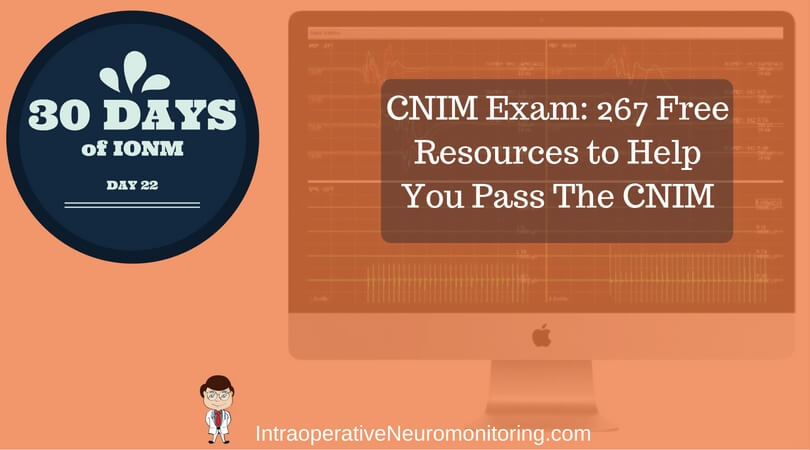
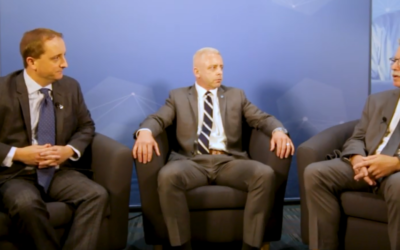
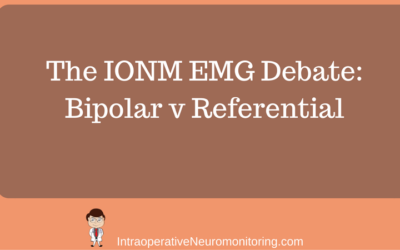
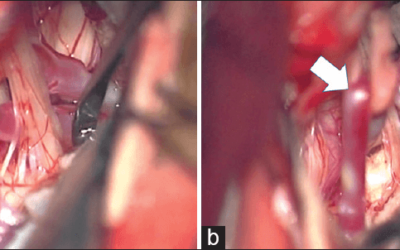
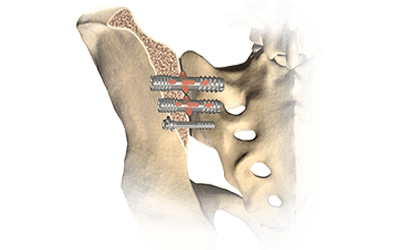


0 Comments